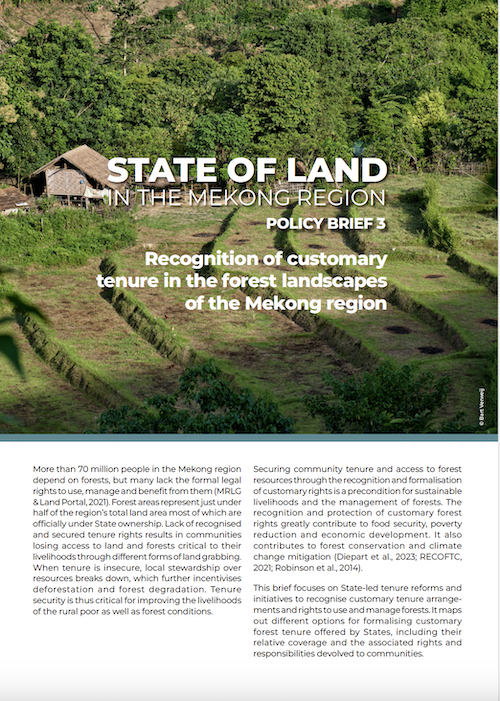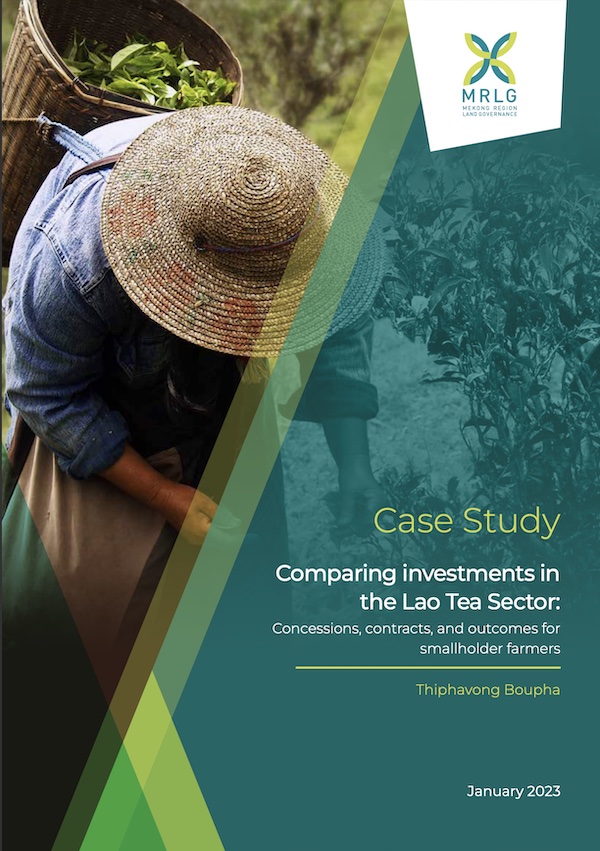Location
Project Description
Land governance is at the center of development challenges in Cambodia, Laos, Myanmar and Vietnam. Governments are revising land policies and practices in order to face these challenges. The project aims to (i) assist the emergence of more favorable policies and practices for securing the rights and access of family farmers to land and natural resources; and (ii) to strengthen the effectiveness of concerned stakeholders through learning, alliance building and regional cooperation.
The MLRG project is based in Laos, with local offices in three other countries: Cambodia, Myanmar, and Vietnam. It supports a wide range of activities (training, exchanges, case studies, focused research, documentation, workshops and seminars) at local, national and regional levels.
The MRLG can support initiatives through three component windows, the first is a learning and advocacy ongoing activity platform supported by National Facilitators in each country. The second two are funded through our Grant Facility open to all stakeholders based on demand and proposals prepared. A short term and immediate response window is the Quick Disbursement Fund (QDF). The second longer term and competitive proposal process is the Innovation Fund (IF). The learning and advocacy activity platform prepared on an annual basis in consultation with stakeholders to organize information collection, analysis, and dissemination, and for horizontal learning and structured learning visits, coaching and pairing, training and organizational strengthening, at the national and regional level.
Members:
Resources
Displaying 1 - 5 of 110Ensuring Gender-Equitable Consultation in Cambodia's Land and Agriculture Law and Policy
This brief consolidates the key findings from a larger Mekong Region Land Governance (MRLG) regional report Towards gender-equitable land policy and law-making in the Mekong Region. The report used consultation processes over the 2024 Land Law as a case study, and involved interviews, participatory consultation pilots, observations of national consultation workshops, and an extensive literature review.
A version in Khmer is also available HERE.
Ensuring Gender-Equitable Consultations in Vietnam's Land and Agriculture Law and Policy
This brief consolidates the key findings from a larger Mekong Region Land Governance (MRLG) regional report Towards gender-equitable land policy and law-making in the Mekong Region. The report used consultation processes over the 2024 Land Law as a case study, and involved interviews, participatory consultation pilots, observations of national consultation workshops, and an extensive literature review.
Recognition of customary tenure in the forest landscapes of the Mekong region
The policy brief, one of four briefs on the agrarian transition in the Mekong region, explores initiatives and pathways forward to recognise customary tenure arrangements and rights over forest areas in the region. More than 70 million people in the region depend on forest areas but lack formal legal rights to use, manage, and benefit from them. Forest landscapes represent just under half of the region’s total land. Yet, over the past two decades, the region has lost a significant amount of forest due to the expansion of commercial agriculture.
Communities at the Core of Protected Area Management: Learning from customary tenure documentation experiences in Cambodia
Comparing investments in the Lao Tea Sector: Concessions, contracts, and outcomes for smallholder farmers
Most tea in Laos is produced by smallholder farmers, who benefit from highly suitable growing conditions and strong demand for sought-after varieties from the vast Chinese market. However, the sector faces many challenges to achieve its full potential. A key barrier in the northern provinces has been the tendency towards monopsony trade concessions, in which the production of a whole district can be under exclusive control of one buyer.






